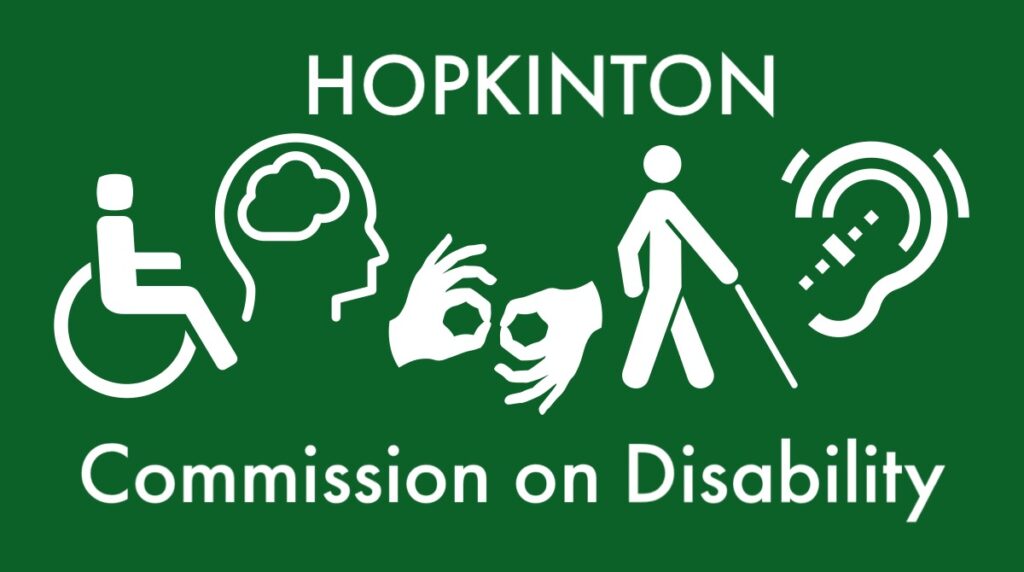While a district attorney review of an insufficiently redacted document involving the Hopkinton Police Department came back with a recommendation of no criminal charges, town counsel on Tuesday acknowledged that it was a devastatingly regrettable situation.
The Northwestern District Attorney Office’s review of the document — which was posted on the Hopkinton Police Department website on April 17 and included some identifying information regarding an individual who accused a local police officer of rape — focused on two key issues: who was responsible for the posting of the insufficiently redacted transcript of the interview with HPD Sgt. Tim Brennan and whether anyone bore criminal responsibility for this incident.
“Personally, and really on behalf of the team, I just want to start with an apology,” attorney Bryan Bertram said in an appearance before the Select Board. “I personally feel awful about what happened, and I know, having spoken with all of the team members, that they do, too. … This was a mistake, and we feel poorly for it, and we do need to apologize for that.
“I can’t pretend to say I understand how this affected the survivor, because I’m not in her shoes, and I don’t know. But I certainly appreciate the significance of it and the severity of it. And we get that.”
Bertram explained that the town was trying to be forthcoming with information in a high-profile matter, which led to the decision to post the Brennan interview that was conducted by the Kroll investigative firm.
According to Bertram, the issues started right from the beginning, as the Kroll interview of Brennan ideally should never have included the identifying information of the alleged victim.
“As a standard investigatory practicer knows, the ground rule was that you’re not supposed to refer to anybody by name — that’s sort of the first line that you follow so that you can avoid mistakes in the future,” Bertram said. “But we’re all human, and so I think the investigator and the sergeant may have slipped at one point or another — and I’m not trying to put blame on them; we’re all human, it happens. But that’s how it ended up in the transcript.”
Bertram said when Kroll delivered the transcript to the town’s labor counsel, it had multiple redactions throughout — “insufficiently, as it turned out, but nonetheless redacted.”
The transcript then made its way to a number of people in Town Hall, and apparently no one noticed the missed redactions.
“As the Northwestern District Attorney’s Office report spells out, many people had access to this document at many different times,” Bertram said. “But they’re also doing it for different reasons. Just because, for example, the Select Board may have received it doesn’t mean there was a responsibility there to identify redactions or anything. We do it for different processes — opportunities maybe to notice it, but at the end of the day, even though it circulated amongst people, you still need processes to redact this.”
Bertram went on to say that the document was “reviewed for redaction by a member of the legal team who obviously thought that it had been [more accurately] redacted by somebody else at the investigative firm.” He acknowledged the “false sense of thinking it had been reviewed for redaction more times than it had” apparently led to the identifying information slipping through.
“In any event, there was a set of eyes on it to review it for redactions, and the name was missed,” Bertram said. “It shouldn’t have been missed, but it was.”
Bertram said lessons have been learned, including being more hesitant about trying be forthcoming with information quickly. He suggested waiting for people to request the information, which would allow more opportunities to remedy the situation before the details were widely shared.
“In high-profile matters such as this, where we have very sensitive documents, that balance may need to go the other way,” Bertram said. “We may want to really not follow that approach [of being proactively forthcoming], because if you do make a mistake, it’s out there.”
Bertram said his team immediately made changes once the mistake was identified.
“We are making sure that multiple internal eyes are on every set of redactions, that there are emails confirming that people have reviewed it” specifically for redactions, he said.
Select Board chair Brian Herr suggested using technology to help identify these kinds of issues, such as using software that would search for an alleged victim’s name in a document. Bertram acknowledged that “could be something that helps.”
However, Bertram said he prefers not to share the alleged victim’s name with anyone — he said he didn’t even know the name himself until this issue arose. But he would consider changing that approach and sharing the name among the legal team members so that they then can look for its appearance in documents.
“It’s really making sure that the town is putting layer upon layer in these very important and sensitive cases,” Bertram said. “We recognize that you can’t go to one person and say, ‘Just do better the next time,’ because we’re all human and we’re all fallible. The way you avoid mistakes is building processes that are layered. They create checks, you put multiple eyes on things, different perspectives. And then even if something eludes that, what we put out there is to a small enough subset that we can at least minimize the potential consequences of that — which didn’t happen here.”
Herr said he would prefer to see more “boundaries” when it comes to sharing Human Resources-related information.
“I’m all for transparency, but HR doesn’t have to be that transparent,” Herr said, while acknowledging he doesn’t know all the legal requirements for sharing information. “These are people’s lives that we’re messing with. And I think it’s important that we find a way to protect the people that we’re charged with protecting and still be transparent.
“We don’t have to put everything on the website. I’m sick of, ‘Let’s put it on the website.’ Why? We don’t have to do that with HR, we shouldn’t do that with HR. … Just because you post it doesn’t mean you’re being transparent. I’m a little juiced about it. It’s a hot-button [topic] for me, and look where we are. Because we were so obsessed with being transparent that we just blew the whole thing up.”
Bertram said he agreed, noting the information had to be provided to anyone who asked, but it did not need to be shared so widely. He called it a lesson learned.
“This is one of the most significant events that has happened in Hopkinton in quite some time,” Bertram said, adding, “We’re sorry, we messed up, and that can’t be overstated. I think it’s important that we own it, we say it and we mean it. I definitely mean it, personally.”
— This report was written by Robert Fucci and Jerry Spar.




















In response to these events, I’d suggest the town do two things: hire a full-time town counsel, a lawyer who works for the town and no one else. We can certainly afford an experienced lawyer given the amount of money we currently pay for legal services. The second thing I would suggest is that we get rid of the public relations firm, we don’t need the expense and there doesn’t appear to be any value-add for their services. Let the Town Manager hire a Chief of Staff or an assistant TM and include media training as a requirement for the job. Again, the money we’d save from paying an outside firm could contribute to that person’s salary.
The new Town Manager has her work cut out for her, as does the Select Board and I wish them all the best!